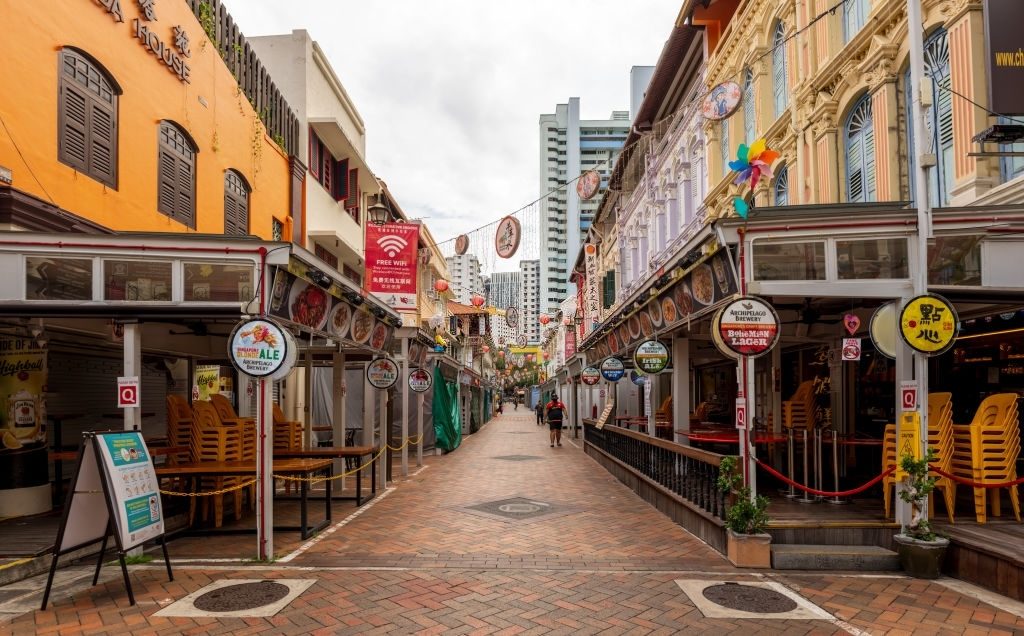Why Easing the Lockdown In Singapore Is Important For the Economy
The Covid-19 pandemic has severely affected the Singaporean economy with expectations of negative growth of between -7.0 per cent and -4.0 per cent. According to the Monetary Authority of Singapore (MAS), the economy is undoubtedly into a downturn, yet it isn’t clear how negative the situation is.
The MAS was quoted by the Star to the effect that it is not clear when the eventual recovery will come.
A countrywide lockdown has meant that economic activities can no longer take place as expected. The worst affected industries include petroleum refining and offshore engineering, which have been halted due to the collapse in the prices of crude oil.
Moreover, the crash on oil prices across the world has had devastating effects on the economy.
On May 4, the country’s total coronavirus infections stood at 18,778, after a report of 573 new cases. That figure meant Singapore was the country with the highest number of Covid-19 cases in the Southern Asia region.
In a statement, the officials from the Health Ministry reported the highest number of infections among foreign workers with work permits. The main undoing for this section of residents was their stay in dormitories for foreign workers.
Singapore has been in phase II of gradual reopening since June 19. Retail shops, sports centres, department stores, and restaurants have been allowed to open in this phase. It was expected that the number of coronavirus patients would rise due to this relaxation.
Hence, the government has been focused on expanding the testing strategy and using modern technology for contact tracing. These measures were taken to ensure that the economy will not suffer more blows, and gradually, all industries will be allowed to return to normal functioning.

On July 3, Singapore authorities announced that the COVID-19 cases were rapidly rising, and there is a great need for extreme caution.
Despite several relaxations in phase II, restrictions like allowing only a small number of people in a gathering are likely to continue under the phase II reopening. Quite understandably, large events like concerts and festivals will not be permitted. Similarly, crowded places like bars and pubs are still closed.
Health Minister Gan Kim Yong, the co-chairman of the coronavirus taskforce, has clearly said that the number of COVID-19 cases will go up in the upcoming weeks, which will fully reflect the impact of phase II reopening on the country.
If there is a significant spike in the cases, more strict measures are expected from the government. Similarly, aggressive testing and contact tracing are adopted to curb the spread of the coronavirus.
All of the international health experts and leading medical experts in Singapore are emphasizing on the fact that the war against COVID-19 is far from over. However, the government is closely monitoring the situation and ready to move towards phase III reopening when the rising number of cases gets under control.
For now, the authorities are asking people to behave responsibly and play their part in controlling this virus through social distancing and wearing masks.
However, not all businesses have been closed. For example, accounting firms in Singapore, which had employees working remotely. Some of the parks and attractions have started to reopen with strict procedures. Universal Studios Singapore, River Safari, and Singapore Zoo are some examples that are going to reopen in phase II.
It was also announced that the cinemas are going to reopen from July 13 and a maximum of 50 people will be allowed in each hall.
It is important to note that despite reopening, many companies are urging people to work from home, whenever they can, to reduce the chances of virus transmission.
It is too early to tell the impact of phase II reopening on the economy. However, it is expected that reopening has provided some kind of support to the dwindling economy.
With the economy open, the country also hopes to re-establish a connection with its international trading partners. That will put a fresh breath of air into its majorly international trading businesses.
Another outcome of reopening is securing hundreds of thousands of jobs, which are under threat. So far, many workers have lost their jobs. According to the central bank, wages have dropped across industries, causing deflation of prices.

In a Nutshell
Reopening is expected to not only make industries operational but to improve the rates of unemployment. An increase in wages will cause the prices of goods and services to rise, thus putting the economy back on a steady path to recovery.
However, that will only be possible if the Covid-19 infection rates keep dropping. Without that, Singapore will be forced to go into another lockdown, which can cause further irreversible damage to the economy.
The government is continually monitoring the situation and developing strategies to make the reopening successful. For more information about the current economy and how you can help your business, feel free to get in touch with us.







